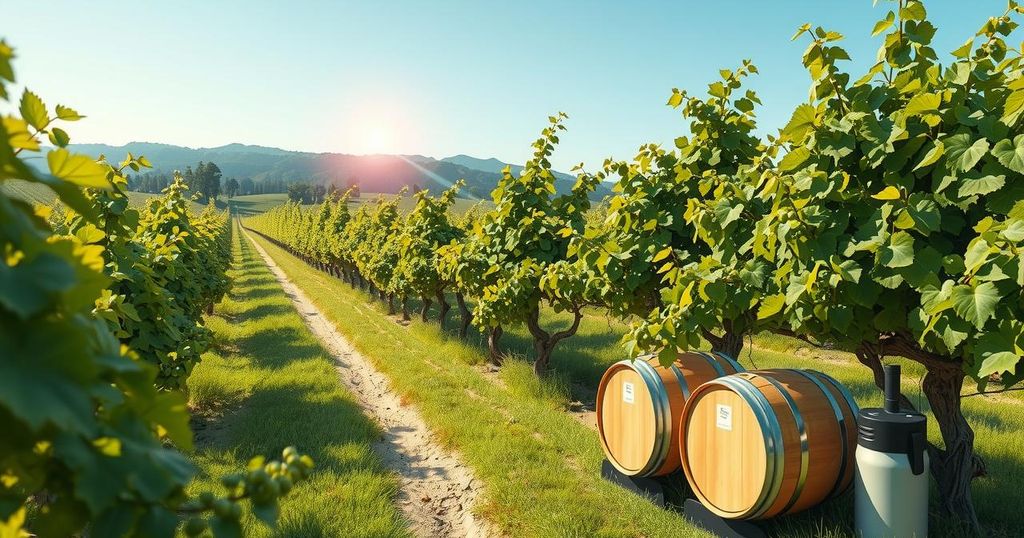The Impact of Artificial Intelligence on Wine Crafting: A Revolution in the Vineyard
AI is revolutionizing the wine industry by enhancing efficiency and sustainability. Innovative technologies like AI-powered ERP systems and autonomous tractors are helping winemakers adapt to climate challenges and streamline operations. However, smaller wineries face barriers to adoption due to costs and training requirements, highlighting a divide in the industry.
Artificial intelligence (AI) is captivating the wine industry, revolutionizing the way wines are crafted. By harnessing cutting-edge technology, winemakers are enhancing labor efficiency while also fostering workforce collaboration. With climate change wreaking havoc on production levels, innovative tools like AI-powered cloud ERP systems help winemakers manage acidity, sugar content, and bitterness to tailor their products more effectively.
As extreme weather patterns led to a disheartening 9.6% drop in global wine production last year, the industry is taking a tech-savvy turn. Winemakers are now adopting AI solutions, such as Wineview, a predictive analytics tool that analyzes historical data and provides real-time insights into production wastage, leading to better resource allocation.
Vineyards are now welcoming AI-powered tractors among their ranks. Early adopter Tom Gamble navigated his Napa Valley vineyard with an autonomous tractor fitted with AI sensors designed for precision farming. This technology facilitates better crop management, allowing farmers to make informed decisions without compromising on the hands-on experience they cherish.
Furthermore, advancements in agricultural technologies enable farmers to minimize waste and promote sustainable practices. Smart irrigation systems analyze soil conditions to optimize water usage, while AI assists in managing crop health. This multifaceted approach not only aids in resource conservation but also elevates operational efficiency.
The wine sector extends beyond vineyards, employing AI for tasks like designing personalized wine labels and using generative models for branding. Talent within the industry is expected to adapt rather than diminish, with operators taking advantage of enhanced skill sets that accompany the integration of AI technologies.
Yet, a divide exists. Smaller wineries hesitate to embrace AI due to financial strains and the need for technical knowledge. With about 80% of the wine business in America being small, family-owned operations, investment and training barriers loom large, posing challenges to scalability.
Moreover, AI shows promise in monitoring crop health, combating diseases that can devastate vineyards. Mason Earles of UC Davis highlights AI’s capacity for diagnosing plant ailments and tracking grape yields, ultimately allowing vintners to adjust their processes according to projected outputs.
Artificial intelligence holds transformative potential in winemaking, enhancing vineyard management and production efficiency. While larger operations smoothly integrate AI technologies, smaller wineries face challenges due to financial constraints and training needs. Nonetheless, AI’s ability to track crop health and optimize processes can lead to sustainable practices within the wine industry, ensuring that even amidst uncertainties, the art of winemaking continues to flourish.
Original Source: www.firstpost.com




Post Comment